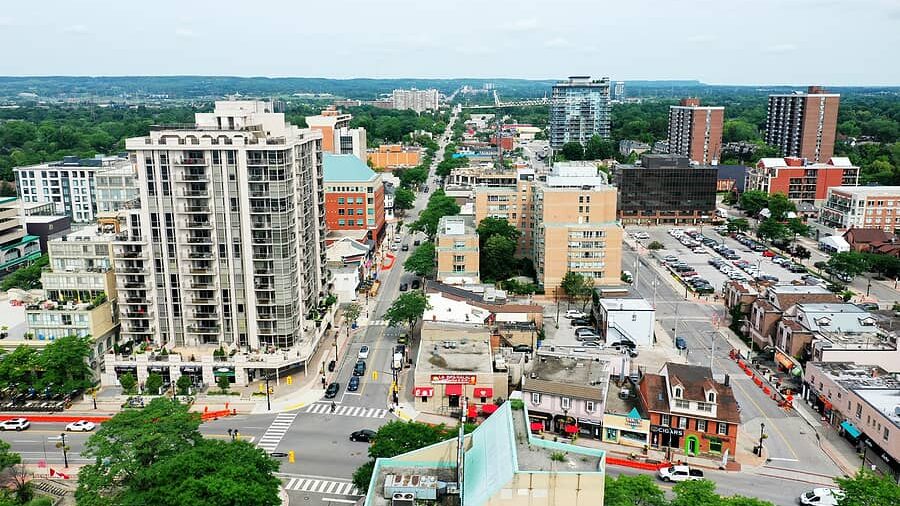
As Ontario’s real estate market soars, Burlington is not to be overlooked with a remarkable double-digit property value increase year-over-year. This housing market offers abundant opportunities for homeowners to unlock their property’s growing equity. Well, what if someone’s credit isn’t in good standing? That’s where private mortgage lenders come into play. Unlike traditional lenders, they can offer loans to those with poor credit scores. In this article, we’ll look deeper into private mortgage lenders in Burlington and focus on why they might be a better alternative for some borrowers.
Faster Financing
Private lenders in Burlington can provide unparalleled speed and agility, which outpaces traditional banks in the fast-moving real estate market. Quick financing is often critical in preventing a power of sale or seizing timely investment opportunities.
Private lenders in Burlington are incomparable with their quick approval and release of the loan amount, setting them apart in the mortgage world. Where conventional banks can take weeks due to their comprehensive credit check and bureaucratic process to go through a mortgage application, private lenders in Burlington mostly get the whole thing done within days. Since they stress property value and debt ratio rather than detailed credit checks, private lenders are able to approve funding very quickly.
Quick funding can be a game-changer in this competitive world of real estate in Burlington. Indeed, the speed of private lenders can make all the difference in securing dream homes or meeting urgent financial needs.
Mortgages from Private Lenders: A Flexible Alternative
When seeking mortgage financing in Burlington, one typically has three tiers of lenders to consider:
- A Lenders- Banks represent this category of lenders. Mortgage approval can be quite rigorous. Lenders routinely subject applicants to tough mortgage stress tests to determine eligibility. Tighter mortgage stress rules as of June 1, 2021, have increased the difficulty of obtaining mortgage financing. Banks also prefer to use easy-to-calculate, substantial household income when approving mortgage loan parameters.
- B lenders- Credit unions and trust companies comprise this category of lenders. While not quite as stringent as the banks when determining mortgage loan approval, these lenders still expect to see a credit score of at least 550 and above and prefer traditional, substantial yearly household income.
- C Lenders- Private lenders make up the final category of lenders. Private lenders are often sought after by borrowers with poor credit, as they can look beyond credit scores by assessing other criteria.
Reasons for Needing a Private Mortgage in Burlington
Private lenders are lenient and often only require the reason for the loan for record-keeping. Some typical reasons among the residents and businesses in Burlington include:
- Paying off high interest credit card debt
- Financing university or college tuition
- Funding home repairs or renovations
- Stopping a power of sale or foreclosure
- Managing living expenses after job loss
Private lenders accommodate borrowers rejected by banks, regardless of reasons or financial status, providing an alternative avenue for financing.
Costs Involved in A Private Lender Mortgage
Private mortgage lenders are more expensive than any other type of mortgage lender. There are no standard costs, but most lenders try to offer rates and fees that are competitive with other lenders. Here are some costs to expect as of December 2024:
- Interest Rates: Typically between 8% and 12%
- Lender Fees: Usually between 2% and 4%
- Broker Fees: Set to match the lender fees, which are usually 2% to 4%
- Appraisal Fee: $500 + HST for single-family homes in Ontario. Larger or unconventional properties will cost more.
- Legal fees: These range from $1,000 to $3,000, depending on the mortgage request.
How LTV Affects Costs
The Loan-to-Value (LTV) ratio plays a big role in determining your costs. Simply put, the closer your mortgage is to the lender’s maximum allowable LTV (typically 75%), the higher your rates and fees. Lenders see higher LTVs as riskier, so they charge more to compensate. Calculate this ratio by taking all existing mortgages plus all proposed mortgages and dividing by the appraisal value.
Here’s an example of how costs can vary based on LTV:
| LTV (%) | Interest Rate (%) | Lender Fees (%) | Broker Fees (%) |
| 50% | 8% | 2% | 2% |
| 60% | 9% | 3% | 3% |
| 70% | 11% | 3.5% | 3.5% |
| 75% | 12% | 4% | 4% |
What You Need to Know About Fees
Your mortgage amount includes specific fees, such as lender, broker, and legal, which are included in your mortgage amount and count toward the LTV. If your request is already at 75% LTV before fees are added, you might exceed the limit and not get approved. Appraisal fees are typically not included in the LTV and are paid by the borrower directly after the inspection is performed.
A good mortgage broker will provide documents that clearly outline all costs related to the mortgage, and whether or not they are included in the mortgage amount. Reviewing the costs with your broker is always a good idea to make sure they fit your financial plan.
When applying for private mortgage lenders in Ontario, you must state why you need the money. Private lenders are usually lenient and will accept the most reasonable responses.
Some popular responses include:
- To pay off high-interest credit card debt
- To pay for home repairs or renovations
- To cover living expenses after a work layoff
- To stop a power of sale or foreclosure
- To pay tuition fees for college or university
In many cases, borrowers approach private lenders for mortgages and loans to help consolidate existing debt or prevent property loss through foreclosure or power of sale proceedings. Many people juggle multiple types of debt at once. For example, as noted above, you might have a mortgage and a significant amount of credit card debt or outstanding student loans. Since mortgage and student loans are owed to different collectors, you may have to keep track of multiple monthly debt payments. A mortgage from a private lender can be enough to pay off what remains on your mortgage and your student loans. Upon settling individual debts, you’ll have a monthly payment to your lender, simplifying your financial obligations. Many borrowers find this an easier way to manage debt.
People who cannot qualify for a low-interest rate loan at a bank are the kind of clients that private lenders seek out. Our private lender network can provide mortgages to people turned down by banks. Most private lenders will offer a rate between 8% to 12%.

Impact and Future of Private Mortgage Lending in Burlington
With the growth of Burlington, new investment avenues cropped up, and private mortgage lenders became vital catalysts for development. Their effects on Burlington’s finances indeed mirror the trends in Ontario, renowned for year-on-year increases in property values that further spur local prosperity. The excellent quality of life and proximity to Toronto have driven an average house price of $1.2 million with an impressively quick average sale time of 14 days.
Local brokers are good at private mortgages of residential and commercial properties, catering for various client needs. They offer tailored services, entrenched local market insight, coupled with vast industry expertise to suit the needs of Burlington.
Burlington: A City Profile
Burlington is a city of about 206,000 residents on the west edge of the Greater Toronto Area, boasting numerous parks, urban amenities, and proximity to Lake Ontario. The locals can tap into considerable property equity through the housing market by buying a home. The traditional routes to lending are full of restrictions, especially if one has poor credit or an unconventional income source. Private mortgage lenders offer a flexible alternative and fill an important gap in the lending landscape of this thriving city.
